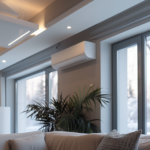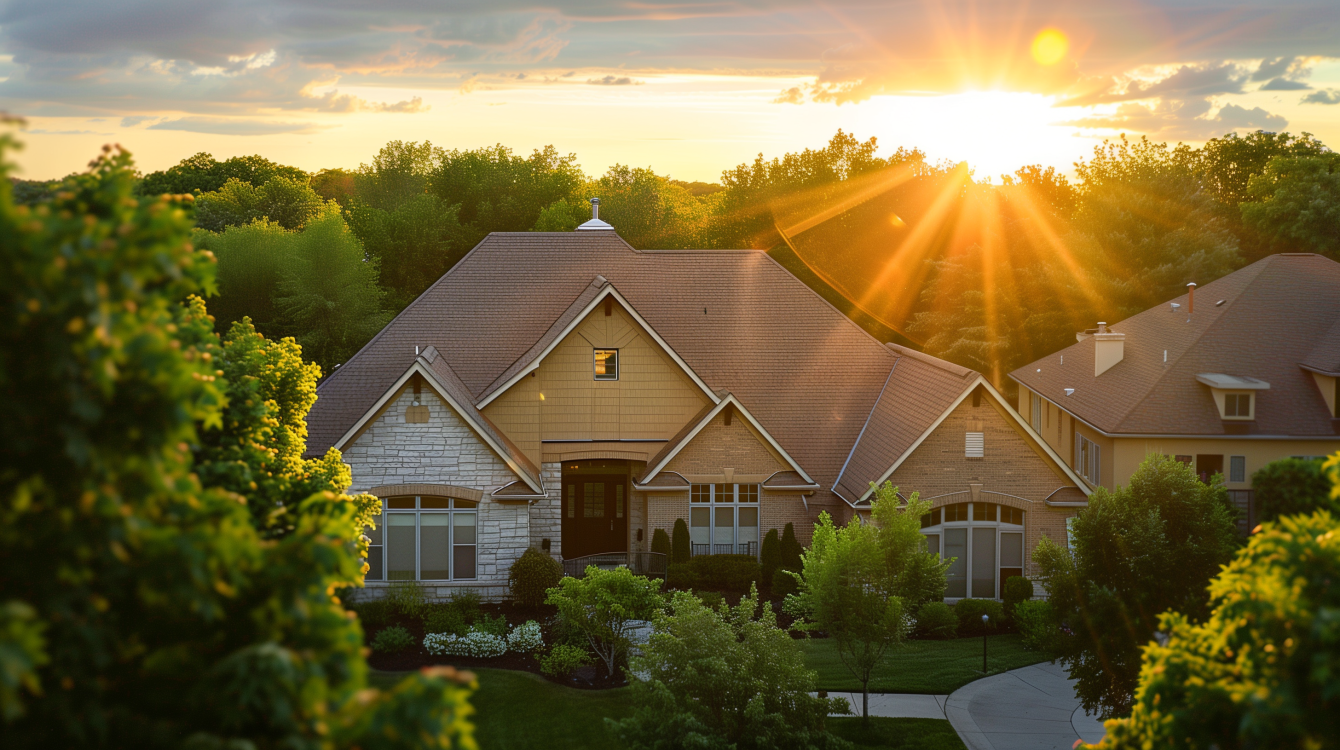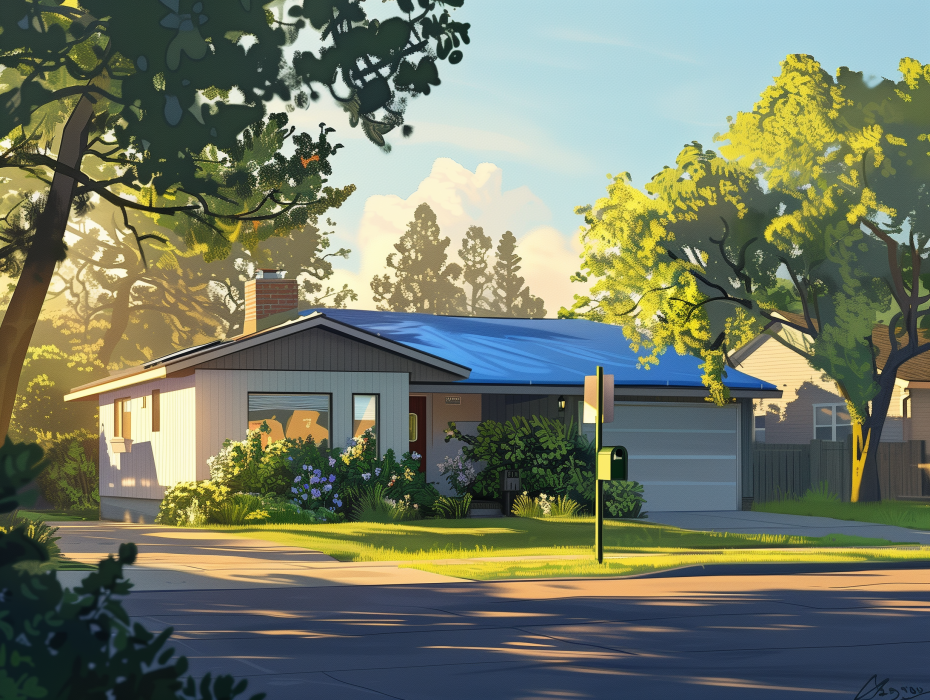The American Society for Testing and Materials (ASTM) sets standards for various materials, including those used in roofing. These standards are crucial for ensuring quality and safety in roofing materials. Here’s a summary of key ASTM standards related to roofing materials:
- ASTM C 208: Standard Specification for Cellulosic Fiber Insulating Board. Six types of cellulosic fiber insulating board; Type II used for roofing with two grades – Grade 1 (primed) and Grade 2 (unprimed, higher density).
- ASTM C 406: Specification for Roofing Slate. Three grades of roofing slate – Grade S1 (>75 years life), Grade S2 (40-75 years life), Grade S3 (20-40 years life).
- ASTM C 552: Specification for Cellular Glass Thermal Insulation. Four types of cellular glass insulation, commonly Type I (flat block) and Type IV (board) used in roofing.
- ASTM C 578: Specification for Rigid Cellular Polystyrene Thermal Insulation. 13 types of rigid cellular polystyrene insulation, including six EPS and seven XPS types, differentiated by density, compressive strength, R-value.
- ASTM C 726: Specification for Mineral Fiber Roof Insulation Board. Mineral fiber roof insulation board – specifications for material composition, physical properties, and dimensional tolerances.
- ASTM C 728: Specification for Perlite Thermal Insulation Board. Perlite thermal insulation board; Type I (¾ inch or 1 inch, laminatable) and Type II (cover board over insulation or in re-cover applications).
- ASTM C 1167: Specification for Clay Roof Tile. Clay roof tiles; three grades based on frost resistance, and types based on profile and appearance.
- ASTM C 1177: Specifications for glass mat gypsum substrate, used as an exterior soffit, sheathing, or for exterior walls with special exposure or performance requirements.
- ASTM C 1225: Specification for Non-Asbestos Fiber-Cement Roofing Shingles Shakes and Slates. Non-asbestos fiber-cement roofing shingles, shakes, and slates, available in various types and classes based on physical properties.
- ASTM C 1278: Fiber-reinforced gypsum panel; used for roofing and other applications, available in different types based on flexural strength and other properties.
- ASTM C 1289: Specification for Faced Rigid Cellular Polyisocyanurate Thermal Insulation Board. Faced rigid cellular polyisocyanurate thermal insulation board; types I-IV, classes 1-3, grades 1-3, based on facing material, compressive strength, and dimensional stability.
- ASTM D 41: Specification for Asphalt Primer Used in Roofing, Dampproofing, and Waterproofing
- ASTM D 43: Specification for Coal Tar Primer Used in Roofing, Dampproofing, and Waterproofing
- ASTM D 173: Specification for Bitumen-Saturated Cotton Fabrics Used in Roofing and Waterproofing
- ASTM D 224: Specification for Smooth-Surfaced Asphalt Roll Roofing (Organic Felt)
- ASTM D 225: Specification for Asphalt Shingles (Organic Felt) Surfaced with Mineral Granules
- ASTM D 226: Specification for Asphalt-Saturated Organic Felt Used in Roofing and Waterproofing
- ASTM D 227: Specification for Coal-Tar Saturated Organic Felt Used in Roofing and Waterproofing. Coal-tar saturated organic felt used in roofing and waterproofing, with specific requirements for mass, breaking strength, and thickness.
- ASTM D 249: Specification for Asphalt Roll Roofing (Organic Felt) Surfaced with Mineral Granules
- ASTM D 312: Specification for Asphalt Used in Roofing. Four types of asphalt for roofing, categorized by softening points (Type I to IV).
- ASTM D 371: Specification for Asphalt Roll Roofing (Organic Felt) Surfaced with Mineral Granules; Wide Selvage
- ASTM D 449: Specification for Asphalt Used in Dampproofing and Waterproofing. Asphalt used in dampproofing and waterproofing; types I-III based on softening point and penetration.
- ASTM D 450: Specification for Coal-Tar Pitch Used in Roofing, Dampproofing, and Waterproofing, specifying penetration grade and softening point.
- ASTM D 1187: Specification for Asphalt-Based Emulsions Used as Protective Coatings for Metal. Asphalt-based emulsions for protective coatings on metal, including types based on asphalt content and viscosity.
- ASTM D 1227: Specification for Emulsified Asphalt Used as a Protective Coating for Roofing, classified by type based on asphalt content, viscosity, and other properties.
- ASTM D 1668: Specification for Glass Fabrics (Woven and Treated) for Roofing and Waterproofing, specifying weave, weight, and tensile strength.
- ASTM D 1863: Specification for Mineral Aggregate Used on Built-Up Roofs, including grading and quality specifications.
- ASTM D 1970: Specification for Self-Adhering Polymer Modified Bituminous Sheet Materials Used as Steep Roofing Underlayment for Ice Dam Protection, detailing adhesive properties, tensile strength, and thickness.
- ASTM D 2178: Specification for Asphalt Glass Felt Used in Roofing and Waterproofing, specifying weight, thickness, and saturation.
- ASTM D 2626: Specification for Asphalt-Saturated and Coated Organic Felt Base Sheet Used in Roofing, with specifications for weight, thickness, and breaking strength.
- ASTM D 2822: Specification for Asphalt Roof Cement. Roof cement (asbestos containing), detailing consistency and adhesive properties.
- ASTM D 2823: Specification for Asphalt Roof Coatings. Asphalt roof coatings (asbestos containing), specifying types based on consistency and weight per gallon.
- ASTM D 2824: Specification for Aluminum-Pigmented Asphalt Roof Coatings, Non-Fibered, Asbestos Fibered, and Fibered without Asbestos
- ASTM D 3018: Specification for Class A Shingles Surfaced with Mineral Granules, focusing on weight, dimensions, and performance.
- ASTM D 3019: Specification for Lap Cement Used with Asphalt Roll Roofing, Non-Fibered, Asbestos Fibered, and Non-Asbestos Fibered, specifying types based on weight and solid content.
- ASTM D 3462: Specification for Asphalt Shingles Made from Glass Felt and Surfaced with Mineral Granules, detailing physical properties and performance requirements.
- ASTM D 3468: Specification for Liquid-Applied Neoprene and Chlorosulfonated Polyethylene Used in Roofing and Waterproofing, including types based on physical properties.
- ASTM D 3747: Specification for Emulsified Asphalt Adhesive for Adhering Roof Insulation, specifying viscosity, solids content, and application properties.
- ASTM D 3909: Specification for Asphalt Roll Roofing (Glass Felt) Surfaced with Mineral Granules, detailing types based on weight and performance.
- ASTM D 4022: Specification for Coal Tar Roof Cement, Asbestos Containing, specifying consistency and performance.
- ASTM D 4434: Specification for Poly(Vinyl Chloride) Sheet Roofing, detailing physical properties like tensile strength and elongation.
- ASTM D 4479: Specification for Asphalt Roof Coatings—Asbestos Free, with types based on consistency and application.
- ASTM D 4586: Specification for Asphalt Roof Cement, Asbestos Free, specifying types based on consistency and application.
- ASTM D 4601: Specification for Asphalt-Coated Glass Fiber Base Sheet Used in Roofing, focusing on weight, thickness, and tensile strength.
- ASTM D 4637: Specification for EPDM Sheet Used In Single-Ply Roof Membrane, detailing physical properties like tensile strength and elongation
- ASTM D 4811: Specification for Nonvulcanized Rubber Sheet Used as Roof Flashing, specifying thickness, tensile strength, and elongation.
- ASTM D 4869: Specification for Asphalt-Saturated Organic Felt Shingle Underlayment Used in Roofing, detailing types based on weight and performance.
- ASTM D 4897: Specification for Asphalt-Coated Glass-Fiber Venting Base Sheet Used in Roofing, with specifications for weight, thickness, and permeability.
- ASTM D 4990: Specification for Coal Tar Glass Felt Used in Roofing and Waterproofing, detailing weight, thickness, and tensile strength.
- ASTM D 5019: Specification for Reinforced Non-Vulcanized Polymeric Sheet Used in Roofing Membrane, specifying thickness, tensile strength, and elongation.
- ASTM D 5643: Specification for Coal Tar Roof Cement, Asbestos Free, detailing consistency and application.
- ASTM D 6083: Specification for Liquid Applied Acrylic Coating Used in Roofing, specifying types based on solids content and viscosity.
- ASTM D 6134: Specification for Vulcanized Rubber Sheets Used in Waterproofing Systems, including types based on tensile strength and elongation.
- ASTM D 6152: Specification for SEBS-Modified Asphalt Used in Roofing, specifying penetration and softening point.
- ASTM D 6162: Specification for Styrene Butadiene Styrene (SBS) Modified Bituminous Sheet Materials Using a Combination of Polyester and Glass Fiber Reinforcements detailing tensile strength and elongation.
- ASTM D 6163: Specification for Styrene Butadiene Styrene (SBS) Modified Bituminous Sheet Materials Using Glass Fiber Reinforcements, specifying physical properties like tensile strength.
- ASTM D 6164: Specification for Styrene Butadiene Styrene (SBS) Modified Bituminous Sheet Materials Using Polyester Reinforcements, detailing tensile strength and elongation.
- ASTM D 6221: Specification for Reinforced Bituminous Flashing Sheets for Roofing and Waterproofing, specifying weight, thickness, and tensile strength.
- ASTM D 6222: Specification for Atactic Polypropylene (APP) Modified Bituminous Sheet Materials Using Polyester Reinforcements, detailing physical properties like tensile strength.
- ASTM D 6223: Specification for Atactic Polypropylene (APP) Modified Bituminous Sheet Materials Using a Combination of Polyester and Glass Fiber Reinforcements, specifying tensile strength and elongation.
- ASTM D 6298: Fiberglass reinforced SBS modified bituminous sheets with metal surface, detailing weight, tensile strength, and metal type.
- ASTM D6509: APP modified bituminous base sheet materials using glass fiber reinforcements, specifying tensile strength and elongation.
- ASTM D6694: Liquid-applied silicone coating for spray polyurethane foam roofing, including types based on solids content and viscosity.
- ASTM D6753: Coal tar adhesive, specifying consistency and application.
- ASTM D6754: Ketone Ethylene Ester based sheet roofing, detailing tensile strength, elongation, and dimensional stability.
- ASTM D6757: Underlayment felt containing inorganic fibers for steep-slope roofing, specifying weight, tensile strength, and permeability.
- ASTM D6848: Aluminum pigmented emulsified asphalt for roofing, specifying types based on viscosity and solids content.
- ASTM D6878: Thermoplastic Polyolefin based sheet roofing; specifications for thickness, tensile strength, and elongation.
- ASTM D6947: Liquid applied moisture cured polyurethane coating used in spray polyurethane foam roofing system; includes tensile strength and elongation criteria.
- ASTM D7067: Reinforced white PIB sheet used in roofing membrane; standards for tensile strength and elongation.
- ASTM D7311: Liquid-applied single-pack moisture-triggered aliphatic polyurethane roofing membrane; includes tensile strength, elongation, and tear resistance criteria.
- ASTM D7425: Spray polyurethane foam used for roofing applications; specifications for density, compressive strength, and thermal resistance.
These standards play a critical role in ensuring that roofing materials meet the required safety, durability, and performance criteria. As professionals in the roofing industry, understanding and adhering to these standards is essential for providing high-quality services to our clients.
For more personalized guidance, consult with engineers and local building codes specific to your location. For immediate service or consultation, you may contact us at Allied Emergency Services, INC.
Contact Information:
- Phone: 1-800-792-0212
- Email: Info@AlliedEmergencyServices.com
- Location: Serving Illinois, Wisconsin, and Indiana with a focus on the greater Chicago area.
If you require immediate assistance or have specific questions, our human support is readily available to help you.
Disclaimer: This article is intended for informational purposes only. For professional advice, consult experts in the field










